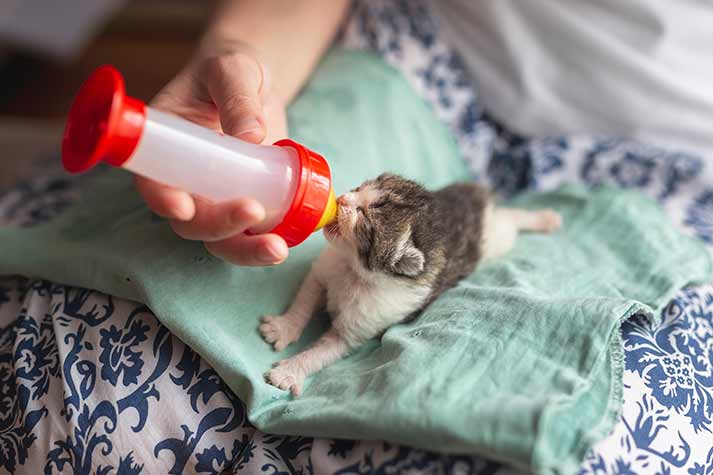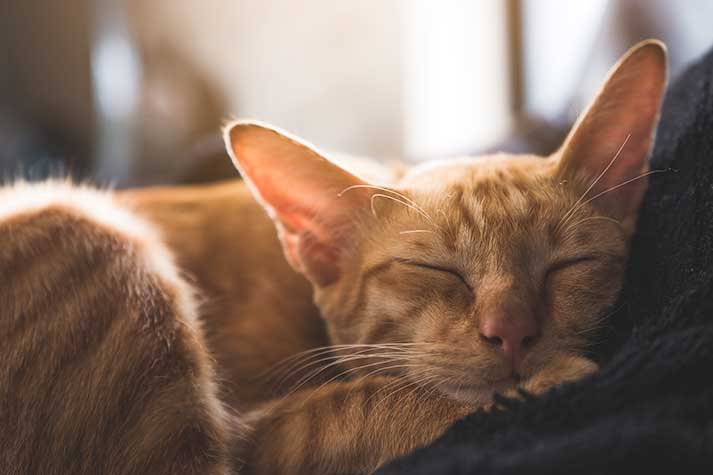
27 Oct
Kitten Care 101: Feeding, Training and Vaccination Tips
Bringing a kitten home is one of life’s most heart-warming experiences. Those soft purrs, playful leaps, and cuddly moments can brighten any day. Yet, with this joy comes real responsibility. Knowing how to care for a kitten properly ensures they grow healthy, happy, and confident. From nutrition and training to vaccinations and international travel preparation, every aspect of kitten care contributes to raising a thriving feline companion. This guide provides detailed insights into all the essentials of kitten care.
Kitten Feeding and Training Tips for a Healthy Start
Kittens grow at an astonishing rate during their first year, which makes proper nutrition and early training essential. High-quality protein supports muscle growth, taurine promotes eye and heart health, DHA contributes to brain development, and essential fats help maintain a soft, shiny coat. Choosing the right food is crucial: look for formulas labelled specifically for kittens or for growth, and check for certifications indicating they are nutritionally complete according to local regulations.
Kitten feeding and training tips include offering both wet and dry food. Wet food provides hydration and is highly palatable, making it excellent for picky eaters, while dry food adds texture and convenience. Many owners find that a mix of both ensures hydration, taste variety, and dental health.
Feeding schedules should adjust as kittens grow. New borns rely on mother’s milk or bottle feeding every two to three hours if orphaned. By six to twelve weeks, kittens transition to soft or wet food three to four times daily. From three to six months, three meals a day suffice, and by six months onward, two meals daily usually work well. Weekly weighing helps track growth; any sudden weight loss or stagnation should prompt a veterinary check-up.
Hydration is equally important. Always provide clean, fresh water, and encourage wet food consumption if your kitten is reluctant to drink. Signs of dehydration include dry gums, sunken eyes, and lethargy. Following these kittens feeding and training tips establishes a strong foundation for lifelong health and behaviour.
Kitten Vaccination Schedule: Essential Vaccinations for Kittens
Vaccinations are critical to protect kittens from serious illnesses. The kitten vaccination schedule includes core vaccines such as FVRCP, which protects against feline viral rhinotracheitis, calicivirus, and panleukopenia, as well as Rabies and FeLV (Feline Leukemia Virus), particularly for kittens who may spend time outdoors or interact with other cats. These are considered essential vaccinations for kittens to ensure immunity against life-threatening diseases.
Typically, kittens receive their first FVRCP shot at six to eight weeks, followed by a booster at ten to twelve weeks. Rabies and the final set of core vaccines are given between twelve and sixteen weeks, with boosters scheduled as recommended by your veterinarian. Vaccinating early is crucial, as kittens’ immune systems are still developing.
For kittens who will travel internationally, vaccinations are even more important. Many countries require up-to-date vaccines for entry, making adherence to the kitten vaccination schedule mandatory.
Socialization and Training: Building Lifelong Habits
Training a kitten might feel challenging, but starting early pays off. Begin with litter training by choosing a low-sided litter box in a quiet, accessible spot away from food and water. Use unscented, clumping litter when age-appropriate and gently place your kitten in the box after meals or naps. Positive reinforcement, such as gentle praise or small treats, encourages consistent use. Daily cleaning is vital, as kittens dislike dirty spaces.
Behaviour and socialization are equally important. Playtime provides exercise, mental stimulation, and strengthens the bond between you and your kitten. Redirect unwanted behaviours, like scratching furniture, by offering a scratching post or pad and rewarding proper use. Avoid harsh discipline, which can damage trust. Gradual exposure to new people, pets, and environments helps kittens develop confidence and adaptability.
Providing enrichment and safety is also key. Offer safe toys, climbing structures, and hide-and-seek areas to keep your kitten engaged. Kitten-proof your home by removing small objects they could swallow, securing windows and balconies, hiding electrical wires, and storing toxic substances out of reach. Regular grooming and handling prepare kittens for vet visits and make brushing, nail trimming, and bathing stress-free.
Pet Travel, International Pet Travel, and Microchipping
If you plan to travel with your kitten, preparation is crucial. Pet travel can be stressful for young cats without proper planning. Start by checking the destination country’s regulations, as some require several months of preparation. Your kitten must be microchipped, vaccinated for rabies, and, if required, undergo a Rabies Titer test to confirm immunity.
A Pet microchip provides permanent identification linking your kitten to you, reducing the risk of loss during travel. Many countries mandate microchipping for pet import/export. Additionally, obtain a health certificate from a licensed veterinarian documenting vaccination, microchip details, and overall travel readiness.
Choose an airline-approved carrier and train your kitten to feel comfortable inside it. Maintaining feeding and bathroom routines as much as possible during travel reduces stress and keeps your kitten calm. The Rabies Titer test measures antibodies after vaccination and ensures your kitten meets international travel requirements. Planning these steps in advance prevents last-minute complications and ensures safe, smooth journeys.
Final Thoughts
Caring for a kitten involves more than feeding and vaccination, it requires patience, observation, and consistency. By following kitten feeding and training tips, adhering to the kitten vaccination schedule, and preparing for pet travel with proper microchipping and testing, you provide the best start for a long, happy life. Pay attention to your kitten’s behaviour, maintain routines, and enjoy each playful, affectionate moment. The early months are formative, and the love, care, and training you provide now will create a strong, lifelong bond.
FREQUENTLY ASKED QUESTIONS &
When can my kitten safely go outdoors?
A kitten can explore outside only after completing the full kitten vaccination schedule, including rabies, and being microchipped. Supervised outdoor time in a safe environment is essential.
How can I encourage my kitten to eat wet food?
Try warming it slightly, adding water or kitten-safe broth, or offering different textures. Gradual transitions help kittens accept new foods.
Is microchipping safe for kittens?
Yes. A Pet microchip is a small, safe implant that permanently links your kitten to you and prevents loss during travel or relocation.
How often should I visit the vet with my kitten?
Kittens require regular vet visits to follow the kitten vaccination schedule, monitor growth, and ensure overall health. Early months typically involve visits every few weeks, then less frequently as they mature.
Can I travel internationally with my kitten immediately after vaccination?
No. International pet travel requires advance planning, including a Pet microchip, rabies vaccination, possible Rabies Titer test, and a vet-issued health certificate to comply with regulations and ensure safety.






AUTHOR’S BIO
Carry My Pet
Passionate pet enthusiasts and globetrotters, dedicated to easing furry friends' journeys worldwide. Penning tales of compassion at CarryMyPet, where every relocation is a tail-wagging adventure.